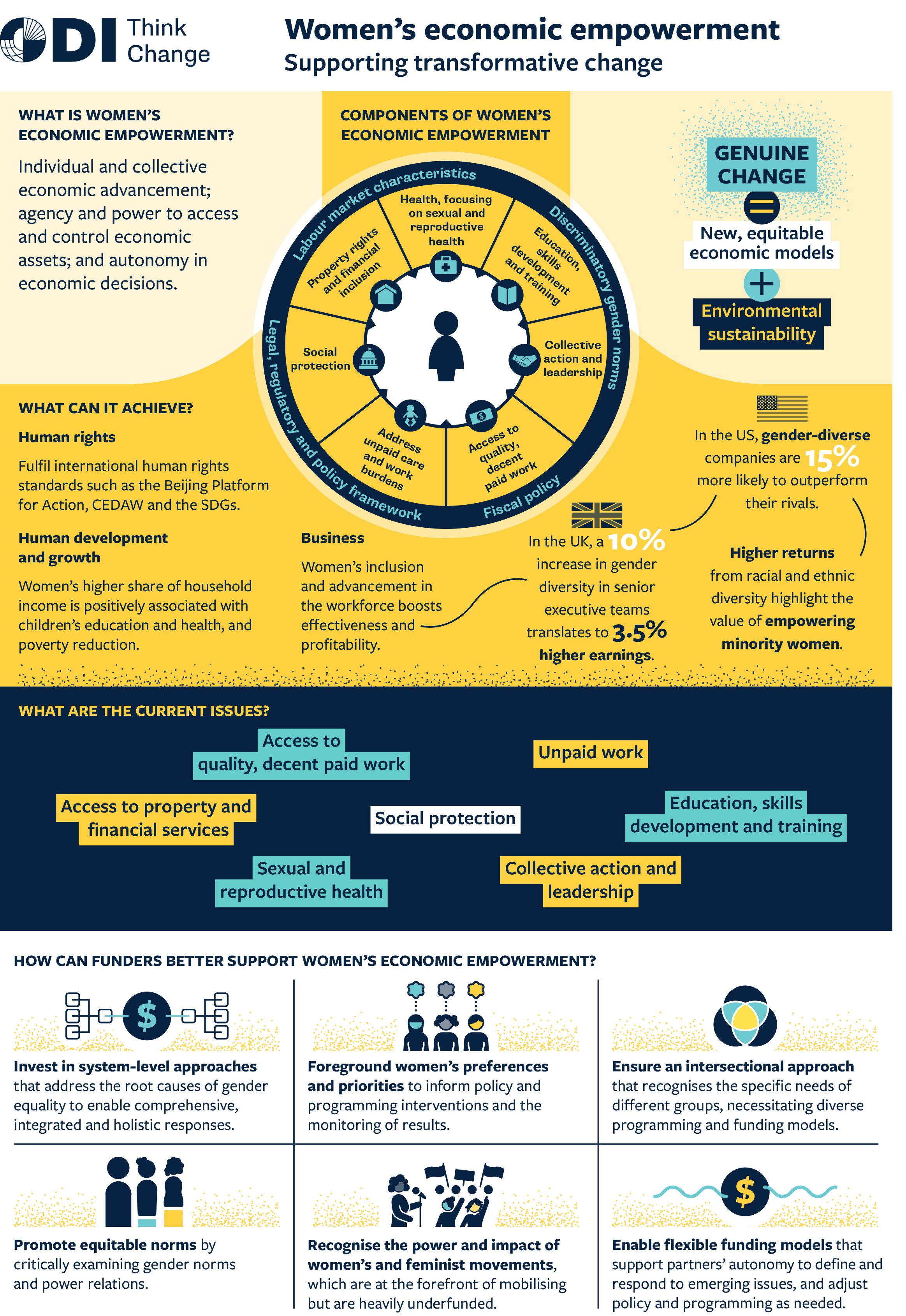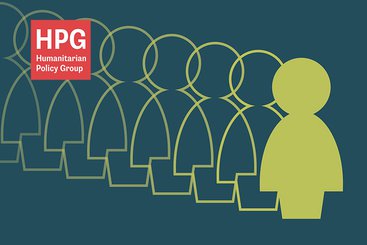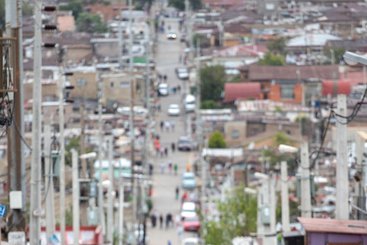Women’s economic empowerment (WEE) is a critical outcome in itself, with the potential to enhance economic growth and wider development outcomes for women, their families and societies. Evidence is accumulating on its components and how these can be supported in diverse contexts and for different groups of women. Its achievement has become a global policy priority given its potential contribution to Agenda 2030 – notably Goal 5 on gender equality and Goal 8, which strives to achieve full and productive employment and decent work for all.
The Covid-19 pandemic has highlighted the precarity of many recent WEE gains, with some reversals of progress in areas including labour force engagement, education, sexual and reproductive health, and early marriage. But it has also highlighted the importance of investments in key sectors such as care infrastructure and the extension of social protection and services to previously excluded groups. The moment is ripe to build on this momentum to bolster recovery and the ability of women and girls to withstand future shocks.
Advancing WEE can be challenging. The norms underpinning gendered outcomes can be ‘sticky’ or resistant to change, particularly when reinforced through social institutions. Progress is often nonlinear, and subject to backlash and reversals. Different understandings of WEE often translate into siloed approaches, while funding is relatively limited and not always delivered in ways that support systemic change. To have an impact, funders need to understand the landscape and make strategic decisions about key investment areas. Context-relevant strategies – particularly for marginalised women – will be crucial to ensure equitable outcomes.
This brief aims to support this process by discussing the concept of WEE, highlighting key trends and evidence (with particular attention to the effects of Covid-19), and identifying principles to support transformative philanthropic activity.





